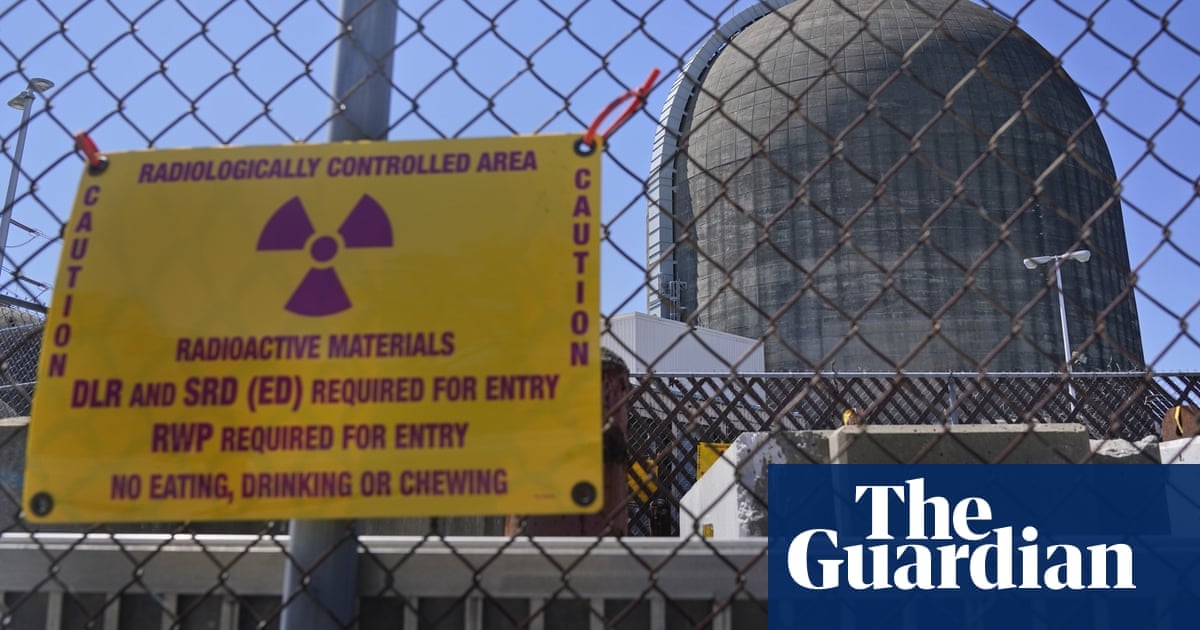- cross-posted to:
- nyc@lemmit.online
- cross-posted to:
- nyc@lemmit.online
Shuttering of New York facility raises awkward climate crisis questions as gas – not renewables – fills gap in power generation
When New York’s deteriorating and unloved Indian Point nuclear plant finally shuttered in 2021, its demise was met with delight from environmentalists who had long demanded it be scrapped.
But there has been a sting in the tail – since the closure, New York’s greenhouse gas emissions have gone up.
Castigated for its impact upon the surrounding environment and feared for its potential to unleash disaster close to the heart of New York City, Indian Point nevertheless supplied a large chunk of the state’s carbon-free electricity.
Since the plant’s closure, it has been gas, rather then clean energy such as solar and wind, that has filled the void, leaving New York City in the embarrassing situation of seeing its planet-heating emissions jump in recent years to the point its power grid is now dirtier than Texas’s, as well as the US average.



The georgia plant just opened 7 years late and 17 billion over cost. It is already running residents $4+/month in fees, with up to $13+/month being discussed, and that outside of the cost of electricity. It far, far over ran even huge government subsidies, with the feds putting up 12 billion.
There are much better places to put those billions now than in incredibly late and overly expensive “modern” nuclear.
To be completely fair to them, a ton of the delay was over lawsuits. I mean, you’d definitely end up dealing with those regardless of where you put upa NPP, but just giving them that small benefit f doubt there.
I’m a customer of theirs, paying the stupid fee. They got all celebratory about getting to the end and now the bill has to be paid and oh look, it’s the customers paying. Joy.
I work nuclear industry adjacent, so I guess it’s job security. And with that disclaimer I’ll add this:
Building new plants is definitely going to take too long. If we get small modular reactors that will help. Same way if we get better batteries for solar and wind storage or new tech in geothermal. The simple point is that we are 50+ years behind. We gotta try anything and everything. It’s our only hope at this point. And no matter what, it’s going to cost. Money, land, your view from your backyard. People aren’t willing to sacrifice anything to get it done, and that’s how it’s going to end for us if we don’t change. And that’s true for literally every problem we have. Nimby-ism will be the death of us.
this
most of that is going to be skill issues. “modern nuclear reactors” are multiple factors simpler than existing gen 2 and 3 plants. The problem is that they don’t exist, and nobody wants to fund them right now.
If none of them have been built, then they aren’t “modern” reactors. They are “theoretical” or “promising designs,” with any improvements being just as “potential” as other unproven techs.
they are modern reactor designs, forgive me for not speaking like an autistic nerd who has a hyper fixation on weird shit for 12 fucking seconds.
They are modern reactors. Just like the RBMK is an old and antiquated reactor, even though they aren’t being built anywhere. Same thing for BWR reactors, which aren’t nearly as common as PWR even though they may be built every so often.